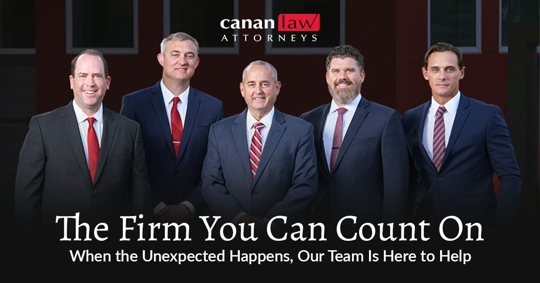Davis v. State of Florida
This story brought to you by Canan Law, voted best St. Augustine Attorney in 2012.
Most people probably already understand that the possession of illegal drugs in the State of Florida, including marijuana, cocaine, and heroin, is a serious criminal offense. However, many may not be aware that there are a wide variety of criminal offenses related to drug possession and transactions, the applicability of which depends on the specific situation. In Davis v. State, Florida’s Fifth District Court of Appeal explains the difference between drug trafficking and conspiracy to commit drug trafficking.
Chad Davis was convicted of trafficking in cocaine and conspiracy to traffic in cocaine. The evidence at trial demonstrated that Robert Adams asked Major Moten to find out if the defendant had cocaine for sale. After confirming the defendant did have cocaine to sell, Moten gave Adams the defendant’s telephone number. Davis and Adams allegedly agreed over the phone to conduct two one-kilogram cocaine transactions on two consecutive days. After completing the transactions, Adams was reported to have solid the cocaine to an unidentified third party.
Although a jury found Davis guilty on one trafficking charge and one conspiracy charge, the Fifth District ruled on appeal that the evidence was not sufficient to support the conspiracy conviction.
As the court explained, a person who knowingly sells, purchases or delivers 28 grams or more of cocaine, or is simply in possession of this amount of cocaine, is guilty of trafficking. Conspiracy to commit the offense, on the other hand, occurs when two or more people agree or conspire to commit trafficking. “The State’s evidence must show that the defendant entered into an agreement with another to commit the crime and intended to commit the crime,” the court explained, quoting its 2009 decision in Green v. State.
In this case, the evidence did not establish a conspiracy involving Davis and Adams because it did not show an agreement between the defendant and any person to commit the same act of selling, purchasing, delivering or possessing cocaine. “Instead, the evidence simply established the planning and execution of a buy-sell transaction between the defendant and Adams,” the court ruled. In other words, according to the court, the discussions between Davis and Adams showed that each man intended to commit a different criminal act: Davis the sale of cocaine, and Adams its purchase. There was no evidence, furthermore, that Davis was aware of or consented to Adams’ plan to sell the cocaine to a third party.
Nor did Moten’s act of giving Adams Davis’ phone number create a conspiracy. “There was no evidence that Moten knew or agreed to the quantity or other details of any prospective drug transaction,” the court ruled.
As a result, the court reversed Davis’ conviction for conspiracy to traffic in cocaine. The remaining trafficking conviction, however, remained in place.
If you have been charged with drug trafficking, you will need an effective, knowledgeable attorney who will aggressively defend your interests. The St. Augustine criminal defense attorneys at Canan represent clients throughout the region, including Jacksonville, Daytona Beach and Palatka, providing honest, professional and compassionate legal services for each and every client. If you or someone you love is facing criminal charges in Florida, call Canan Law at (904) 849-2266 or stop by our offices at 43 Cincinnati Avenue in downtown St. Augustine.
Canan Law, the most respected team of attorneys in St. Augustine, keeps you informed with blog posts discussing legal terms and Florida court cases that matter to you. Our firm specializes in auto accidents, personal injury and medical malpractice cases. Ask your legal question today with our website’s live chat feature!



